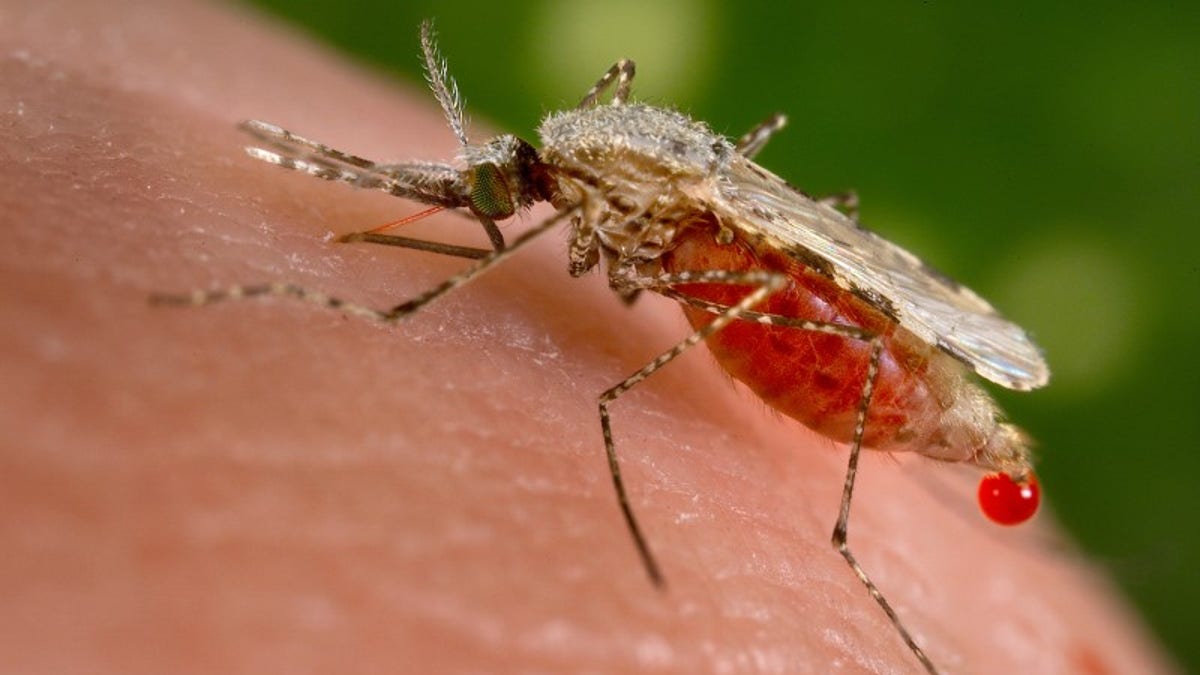
An Anopheles stephensi mosquito obtains a blood meal from a human host through its pointed proboscis in this handout photo (Copyright Reuters 2016)
DAKAR (Thomson Reuters Foundation) - Giving malaria prevention drugs to older children, not just to those under five, during the rainy season in sub-Saharan Africa can massively cut cases and transmission of the deadly disease, health experts said on Tuesday.
Seasonal malaria chemoprevention (SMC) involves giving children under five antimalarial drugs once a month during the rainy season and has already been implemented in nearly a dozen Sahel countries where the disease is highly seasonal.
But providing preventive drugs to children up to age 10 during the high malaria season in Senegal more than halved cases in that age group, found a study by the London School of Hygiene & Tropical Medicine and Senegal's Cheikh Anta Diop University.
The approach also led to a 26 percent decrease in malaria cases among children older than 10 years old, showing that SMC can contribute to reducing transmission, the study said.
While the SMC treatment is known to provide a high degree of personal protection against malaria, it was previously assumed that it would not contribute to community-wide reduction in the transmission of the disease, according to the joint study.
"The SMC intervention in Senegal is an example of a locally-adapted approach to malaria control that could be a blueprint for an effective strategy to tackle malaria in this part of Africa," said Badara Cisse of Cheikh Anta Diop University.
Last year, there were 214 million cases of malaria worldwide with the mosquito-borne disease killing 438,000 people, the vast majority of them babies in sub-Saharan Africa.
The World Health Organization (WHO) says giving under-fives preventive drugs during the Sahel region's short rainy season can cut death rates by up to 75 percent.
National malaria control programmes have responded quickly and SMC has now been rolled out to 11 countries in the region, reaching about 15 million children in 2016, the study said.
The authors said they wanted to examine the effectiveness of also giving SMC to children aged up to 10 amid a rise in the relative number of malaria cases in the region's older children.
Including older children did not greatly increase the time needed to deliver the intervention each month - which cost an average of $0.50 per child to deliver, according to the study.
Paul Milligan, lead investigator at the London School of Hygiene & Tropical Medicine, said giving SMC to older children was essential to "winning the long-term fight against malaria".
"It is important now to strengthen national surveillance systems so we can define the regions where expanding the age range for SMC would have the greatest benefit," Milligan said in a statement as the study was published.
